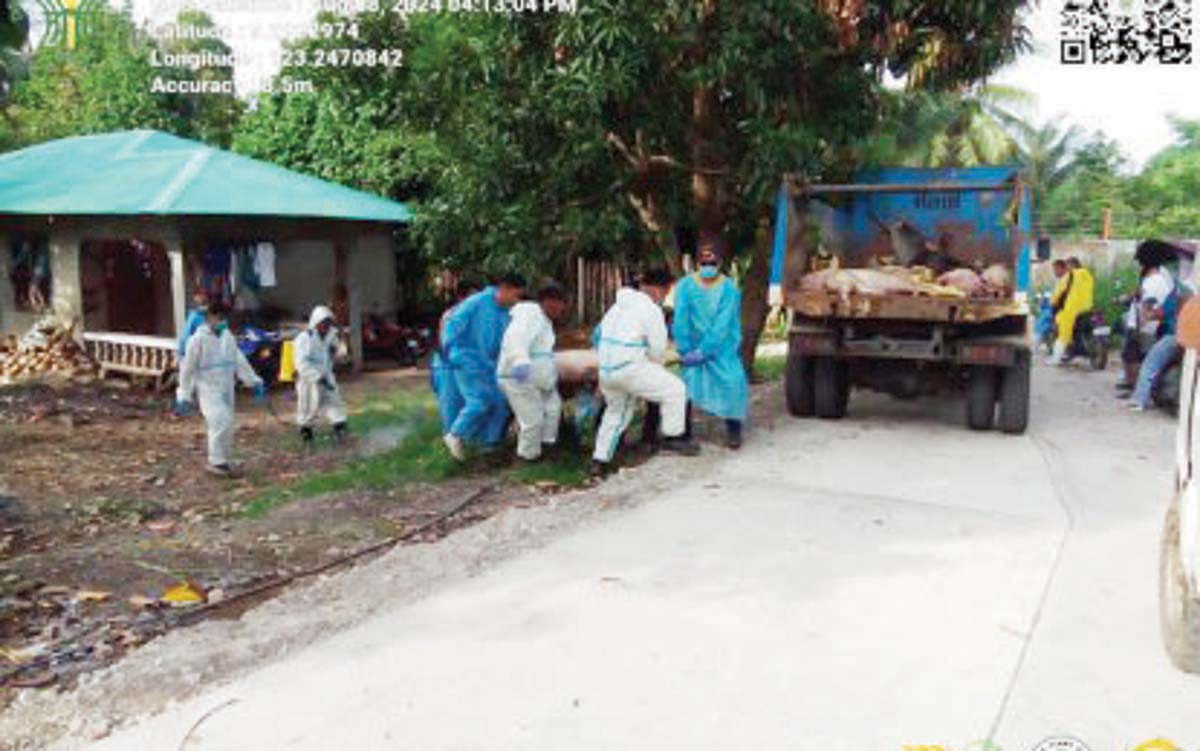
The Department of Agriculture (DA) will indemnify farmers whose hogs were culled following an outbreak of African swine fever (ASF) in Barangay West Balabag in Valencia, Negros Oriental, an official said.
Alejandro Rafal, DA-Provincial Agriculture Technical Coordinating Office (DA-PATCO) told the Philippine News Agency that each farmer will get P5,000 per culled hog up to a maximum of P20,000 for four hog heads.
“We are now consolidating data from the Provincial Veterinary Office [PVO] as regards the total number of farmers/individuals affected by the stamping out activities conducted by multiple agencies in recent days,” Rafal said.
As of August 9, some 192 hogs were culled with 37 farmers in West Balabag affected.
Meanwhile, Jaymar Vilos, PVO information officer-designate, said in a separate interview that they concluded their depopulation of pigs on August 8.
“Laboratory tests of blood samples taken from pigs already turned out negative for ASF as of today,” Vilos said.
Surveillance and monitoring of ASF cases, however, continue in the adjacent barangays of Balugo, Calayugan and East Balabag, which have hog populations.
Vilos said they were looking into the possibility that ASF could still be present in the province since some LGUs and hog farmers were uncooperative in surveillance and reporting activities, making it difficult for authorities to take action to stamp out ASF. (PNA)

